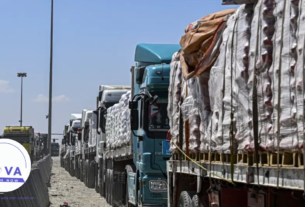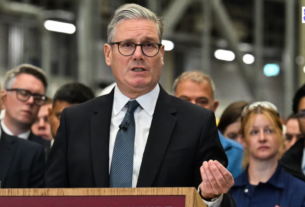LONDON A UK court is now at the center of a major legal and moral reckoning over the government’s role in the Israel-Gaza conflict, as it examines whether the export of British-made F-35 fighter jet parts to Israel violates international law.
The case, filed by Al-Haq, a prominent Palestinian human rights organization, argues that the UK government has prioritized arms exports over its legal obligation to prevent genocide. The High Court is being urged to review whether the UK’s contribution to the U.S.-Israel joint F-35 production program makes it complicit in alleged war crimes committed in Gaza.
At the heart of the case is the UK’s continued shipment of parts for the Lockheed Martin F-35 stealth fighter, a jet heavily used by Israel during its military operations in Gaza. Although the final jets are assembled in the United States, 15% of each aircraft is manufactured by UK companies, making Britain a key contributor.
Al-Haq’s legal team is pressing the court to revoke current export licenses, citing the Genocide Convention and the UK’s duty to prevent international atrocity crimes. The group’s lawyers argue that British components are being used in military strikes that have resulted in mass civilian casualties.
This lawsuit follows reports by humanitarian organizations that Israeli airstrikes have destroyed residential areas, hospitals, and refugee shelters, leading to calls for international accountability. Israel maintains that its use of force is in line with self-defense and international humanitarian law.
In court documents, the UK government has defended its position, stating it conducts a “rigorous, case-by-case assessment” of all arms exports and has “found no clear risk” that the parts are contributing to serious violations. However, critics argue this approach is insufficient amid the ongoing humanitarian crisis.
Campaign Against Arms Trade (CAAT) and several MPs have voiced support for the legal challenge, warning that the UK’s defense industry should not be shielded from scrutiny when civilian lives are at stake.
Human rights lawyers involved in the case noted that this is not just a question of policy, but of accountability, with the outcome likely to influence how future arms exports are regulated especially in active conflict zones.
The High Court’s decision, expected later this year, could set a legal precedent for how the UK balances defense contracts with its human rights obligations under international law.




